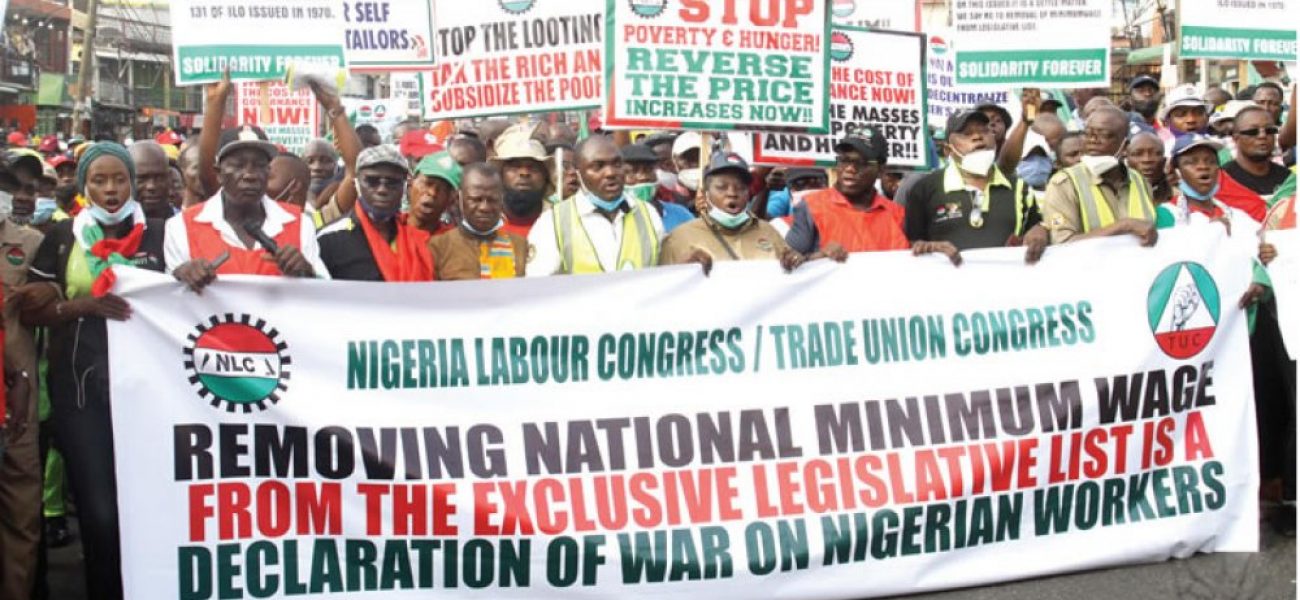President Bola Tinubu is set to send to the National Assembly the Executive proposal for a new minimum wage for Nigerian workers. At a nationwide address on the occasion of Nigeria’s Democracy Day on June 12, 2024, President Tinubu indicated that a minimum wage bill will be sent to the National Assembly for passage.
At a stalled meeting between Labour and the Federal Government, a decision could not be reached between the government’s proposal of N62,000 and Labour’s demand for a minimum of 250,000. Government had cited inability to pay and dwindling revenues. Labour on its part, believes that the government can afford to pay its demand given what it believes to be available resources, profligacy in government and unwillingness of government to cut wastages on its spend. By proposing to send a new minimum wage bill to the National Assembly, the Federal Government may appear to have shifted the battle between it and Labour to the legislative arm of government in order to forestall a strike action by Labour.
The National Assembly is currently on recess and is not expected to resume plenary until July 2, 2024. This will appear to provide a respite from the strike by Labour pending the National Assembly’s action on minimum wage. It is expected that the National Assembly will pursue the legislative process, including a public hearing and consulting with Labour on the matter, to enable a new minimum wage to be passed.
It will be recalled that the labour unions and the Federal Government have been negotiating a new minimum wage. A new minimum wage was one of the demands of the unions when they were protesting against some of the economic policies of the Tinubu administration. The labour unions had initially demanded a new minimum wage of N615,000 to match the rising cost of living in the country. The Federal Government on its part, first proposed N48,000 and then later proposed N60,000 as the new minimum wage but both proposals were rejected by the unions. With the negotiations ending in a deadlock, the unions proceeded on a nationwide strike on Monday, June 3, despite the efforts of the National Assembly leadership to get them to shelve the strike. Shortly after the commencement of the strike, it was called off on Tuesday, June 4 for five days when the Federal Government agreed to take the minimum wage above N60,000.

